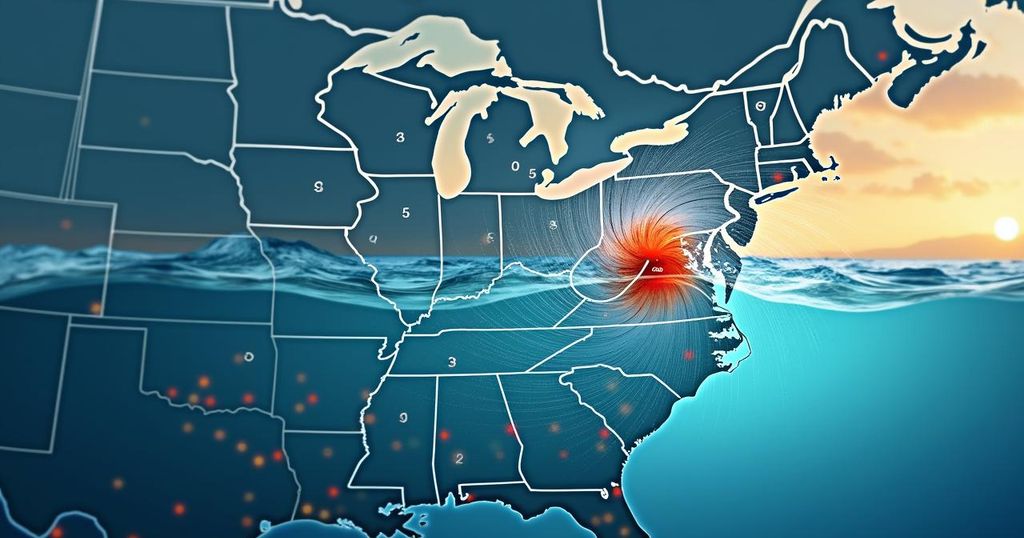Health Risks Emerge for Residents in Southeast Following Hurricane Helene

Hurricane Helene has left thousands in the Southeastern United States without access to clean water and power one week following the storm’s landfall. Health officials are warning of serious health risks, including contamination from floodwaters and mold growth. Approximately 180 storm-related deaths have been confirmed, with significant recovery efforts underway and federal assistance being provided to affected regions.
In the wake of Hurricane Helene, residents across the Southeastern United States are grappling with the aftermath as they endeavor to return to their homes. The storm, which made landfall in Florida’s Big Bend region, has resulted in significant flooding and posed numerous health hazards for those affected. Health authorities are particularly alarmed about the potential for water contamination and the proliferation of mold following the significant rainfall. Health officials report over 180 fatalities associated with the hurricane, with search efforts ongoing for the missing. Many residents remain without electricity or access to clean water as of one week post-hurricane. The North Carolina Department of Health and Human Services has issued nearly 160 boil water advisories, with numerous water treatment facilities halted due to storm damage. City officials in Asheville have warned that nearly 100,000 residents may experience a wait of several weeks before clean water becomes available. Boil water advisories are similarly in force in Florida, Georgia, Tennessee, and Virginia. Disaster epidemiologist Jennifer Horney articulates the urgency of the situation: “Access to clean water is one of the most urgent health concerns after a flood. People need water for drinking, preparing food, cleaning, bathing, even flushing toilets. Contact with contaminated water can cause serious illnesses.” She notes the risk of exposure to sewage-laden floodwaters, which can lead to various health issues, particularly for vulnerable populations. Other health risks include gastrointestinal illnesses and carbon monoxide poisoning stemming from improper generator use following the storm. Additionally, long-term mold exposure is a concern, particularly for pregnant women and individuals with asthma. Hurricane Helene, categorized as a Category 4 storm upon landfall, has been linked to extreme weather patterns tied to climate change and has wrought extensive damage across several states. Federal assistance is being deployed to support recovery efforts, with the Biden administration indicating that further help is forthcoming. Both President Biden and Vice President Kamala Harris visited affected areas, acknowledging the extensive challenges that multiple states continue to face in the storm’s aftermath.
Hurricane Helene struck the Southeastern United States, particularly affecting states such as Florida, North Carolina, South Carolina, Tennessee, Virginia, and Georgia. The hurricane caused catastrophic flooding, resulting in fatalities and widespread destruction, prompting immediate health concerns regarding water quality and safety. Health authorities have highlighted the increased risk of waterborne diseases due to the contamination of drinking water supplies. The public health impact of hurricanes is profound, affecting both physical health due to water contamination and mental health due to the devastation experienced by communities. This event has also raised discussions regarding the larger implications of climate change on the frequency and severity of such natural disasters, reinforcing the need for comprehensive disaster preparedness and response strategies.
The aftermath of Hurricane Helene has underscored the critical importance of access to clean water in the wake of major natural disasters. With ongoing health advisories and the risk of waterborne illnesses, authorities are mobilizing resources to facilitate recovery and ensure safe water access for affected populations. The long-term recovery will necessitate sustained federal and state support as communities continue to rebuild after the devastation, particularly in the face of climate-related challenges that may lead to more frequent hurricanes.
Original Source: www.axios.com






